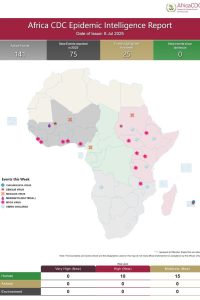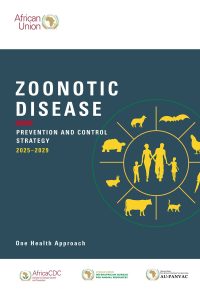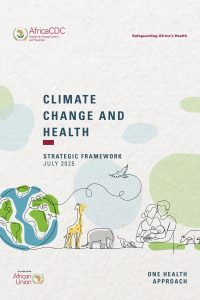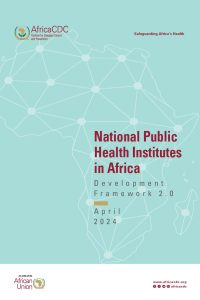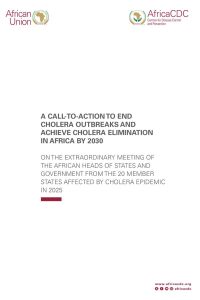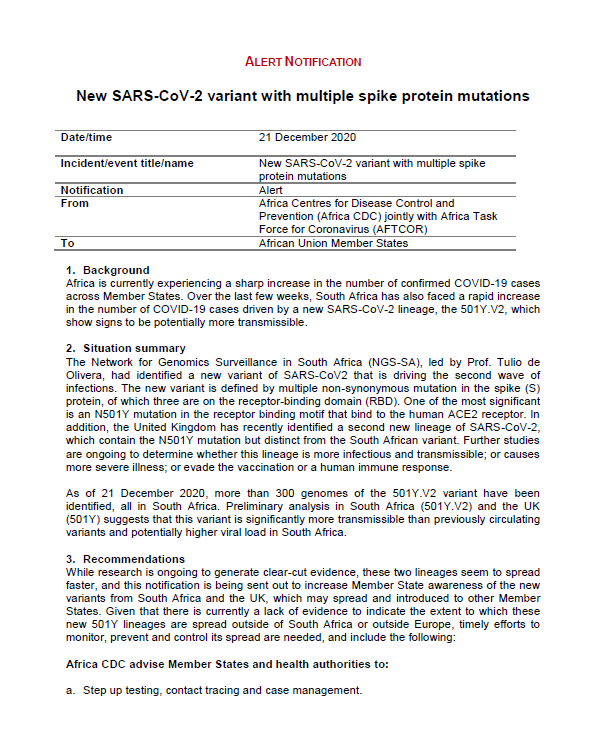
- Version
- Download 3971
- File Size 1.59 MB
- File Count 1
- Create Date 21 December 2020
- Last Updated 4 January 2021
Alert Notification: New SARS-CoV-2 variant with multiple spike protein mutations
Date/Time: 21 December 2020
Incident/Event title/Name: New SARS-CoV-2 variant with multiple spike protein mutations
Notification*: Alert Warning Activation Execution
From: Africa Centres for Disease Control and Prevention (Africa CDC) jointly with Africa Task Force for Coronavirus (AFTCOR)
To: African Union Member States
- Background
Africa is currently experiencing a sharp increase in the number of confirmed COVID-19 cases across Member States. Over the last few weeks, South Africa has also faced a rapid increase in the number of COVID-19 cases driven by a new SARS-CoV-2 lineage, the 501Y.V2, which show signs to be potentially more transmissible.
- Situation summary
The Network for Genomics Surveillance in South Africa (NGS-SA), led by Prof. Tulio de Olivera, had identified a new variant of SARS-CoV2 that is driving the second wave of infections. The new variant is defined by multiple non-synonymous mutation in the spike (S) protein, of which three are on the receptor-binding domain (RBD). One of the most significant is an N501Y mutation in the receptor binding motif that bind to the human ACE2 receptor. In addition, the United Kingdom has recently identified a second new lineage of SARS-CoV-2, which contain the N501Y mutation but distinct from the South African variant. Further studies are ongoing to determine whether this lineage is more infectious and transmissible; or causes more severe illness; or evade the vaccination or a human immune response.
As of 21 December 2020, more than 300 genomes of the 501Y.V2 variant have been identified, all in South Africa. Preliminary analysis in South Africa (501Y.V2) and the UK (501Y) suggests that this variant is significantly more transmissible than previously circulating variants and potentially higher viral load in South Africa.
- Recommendations
While research is ongoing to generate clear-cut evidence, these two lineages seem to spread faster, and this notification is being sent out to increase Member State awareness of the new variants from South Africa and the UK, which may spread and introduced to other Member States. Given that there is currently a lack of evidence to indicate the extent to which these new 501Y lineages are spread outside of South Africa or outside Europe, timely efforts to monitor, prevent and control its spread are needed, and include the following:
Africa CDC advise Member States and health authorities to:
- Step up testing, contact tracing and case management.
- Enhance epidemiologic surveillance for early identification of hotspots and continue to encourage community members to adhere to the non-pharmaceutical interventions (the public health and social measures).
- Collaborate and coordinate with national or regional pathogen genomics laboratories to expand genomic surveillance and sequence virus isolates in a timely manner. Africa CDC Institute of Pathogen Genomics, through the Africa Pathogen Genomics Initiative, will support coordination at the continental level.
- Notify Africa CDC immediately if they identify any new SARS-CoV-2 variant.
- Carefully follow-up cases with S-gene drop-out during RT-PCR tests and suspected COVID-19 reinfection. Specimens of suspected cases should be stored for further sequencing and investigation.
Additional resources
- Detailed presentations on the 501Y.V2 by Prof. Tulio de Oliveira and Prof. Salim Abdool Karim on what we know, what we do not know and what does mean for the pandemic in Africa (https://www.krisp.org.za/ngs-sa/).
- A simple Question and Answer section produced by the South Africa Department of Health is also available at (https://www.krisp.org.za/news.php?id=460)
- Information on the U.K. lineage is available the COVID-10 Genomics UK Consortium Website (https://www.cogconsortium.uk/news/) and on virological.org website (https://virological.org/t/preliminary-genomic-characterisation-of-an-emergent-sars-cov-2-lineage-in-the-uk-defined-by-a-novel-set-of-spike-mutations/563)
- Contacts
- Africa CDC: Dr Sofonias Kifle Tessema (sofoniast@africa-union.org)
- KRISP: Prof. Tulio de Oliveira (deoliveira@ukzn.ac.za)
Attached Files
| File | Action |
|---|---|
| ALERT NOTIFICATION - new SARS-CoV-2 variant | Download |

